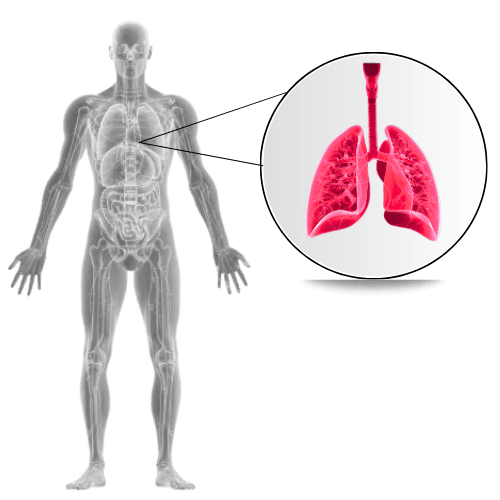 A1AT deficiency (AATD) results in uninhibited neutrophil elastase activity, and this imbalance can lead to lung damage, including emphysema.
A1AT deficiency (AATD) results in uninhibited neutrophil elastase activity, and this imbalance can lead to lung damage, including emphysema.
- Caused by low levels of alpha1 antitrypsin (A1AT), a protein synthesized and secreted by the liver
- A1AT protects the lungs from infection and lung diseases such as emphysema and COPD
- More than 20 million individuals in the United States possess the genetically deficient alleles that cause AATD
- Affects up to 5% of the approximately 12 million patients with COPD in the United States
- An estimated 100,000 individuals are affected in the United States
- An estimated 90% have not been diagnosed, and fewer are being treated
- Lung-related symptoms usually develop between the ages of 20 and 40



 )
)
